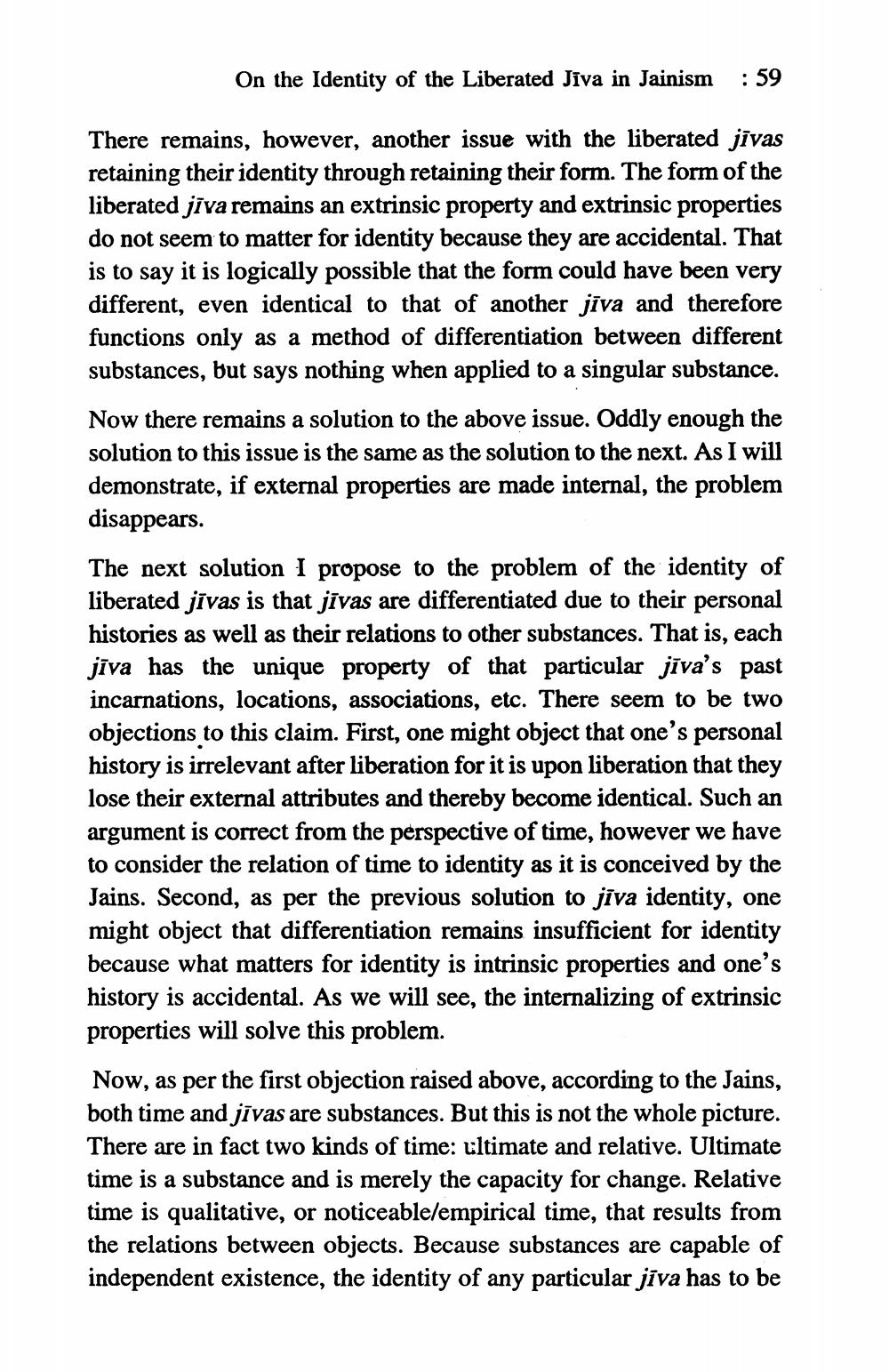________________
On the Identity of the Liberated Jīva in Jainism
: 59
There remains, however, another issue with the liberated jīvas retaining their identity through retaining their form. The form of the liberated jīva remains an extrinsic property and extrinsic properties do not seem to matter for identity because they are accidental. That is to say it is logically possible that the form could have been very different, even identical to that of another jīva and therefore functions only as a method of differentiation between different substances, but says nothing when applied to a singular substance. Now there remains a solution to the above issue. Oddly enough the solution to this issue is the same as the solution to the next. As I will demonstrate, if external properties are made internal, the problem disappears. The next solution I propose to the problem of the identity of liberated jīvas is that jīvas are differentiated due to their personal histories as well as their relations to other substances. That is, each jīva has the unique property of that particular jiva's past incarnations, locations, associations, etc. There seem to be two objections to this claim. First, one might object that one's personal history is irrelevant after liberation for it is upon liberation that they lose their external attributes and thereby become identical. Such an argument is correct from the perspective of time, however we have to consider the relation of time to identity as it is conceived by the Jains. Second, as per the previous solution to jiva identity, one might object that differentiation remains insufficient for i because what matters for identity is intrinsic properties and one's history is accidental. As we will see, the internalizing of extrinsic properties will solve this problem.
Now, as per the first objection raised above, according to the Jains, both time and jīvas are substances. But this is not the whole picture. There are in fact two kinds of time: ultimate and relative. Ultimate time is a substance and is merely the capacity for change. Relative time is qualitative, or noticeable/empirical time, that results from the relations between objects. Because substances are capable of independent existence, the identity of any particular jiva has to be




